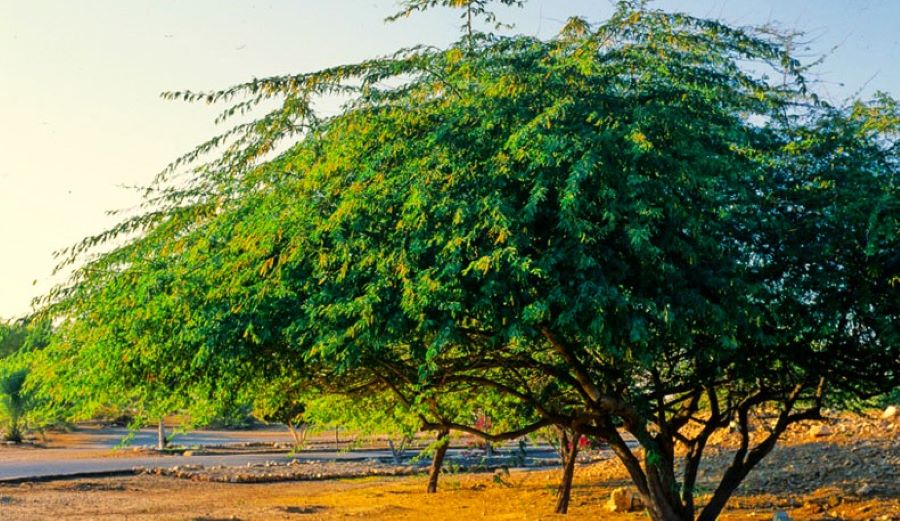Lake Natron in Danger: Killer shrubs advancing from Kenya threaten this important wetland in Tanzania
There is an alien, invasive and toxic shrub which has been found to stifle biodiversity and cause water sources to dry, is currently inching towards Lake Natron, an important water body mapped within the Longido and Ngorongoro Districts.
“Lake Natron will certainly dry if the deadly Prosopis Juliflora pigmy tree reaches its water shores,” warned the Longido District Environment Officer, Elimeleki Ukwai.
Lake Natron, a Ramsar Site wetland of international significance is also East Africa’s breeding site for the pink flamingos.
Now, should the Prosopis weed turn the lake into a dry basin, it will be a massive ecological disaster.
On his part, the Kitumbeine Division officer, Lee Olduka Mamasita said the deadly weed has been killing cattle and goats, as well as resulting to miscarriage among several livestock species, essentially threatening the survival of pastoral communities.
So far, various environment institutions and community organizations from Kenya and Tanzania that recently met in Longido have started process to try and contain the infestation of the poisonous weed.
The soil and land destructive Prosopis shrubs is known locally as ‘Mrashia!’
These include the Tanzania Forestry Research Institute (TAFORI), Tanzania Natural Resources Forum (TNRF), Tanzania Wildlife Management Authority (TAWA), Community Research and Development Services (CORDS), Ujamaa Community Resources Team (UCRT) and the Centre for Agriculture and Biosciences International (CABI) of Kenya.
The Director of Tanzania Natural Resources Forum, Zacharia Faustin explained during the meeting that the deadly weed shrub has led to the destruction of large acres of grazing lands, water streams and natural growth, threatening the lives of local livestock.
A Researcher from TAFORI, Dickson Xavery said there are national strategies to eradicate all invasive plant species in the country, by at least 50 percent before the year 2029, but as time goes by, more species of deadly weeds continue to crop up.
So far, the Proposes shrub has blanketed most parts of Northern Tanzania including the Wosi-Wosi Village of Gelai Lumbwa Ward, the Matale Ward both in Longido District, the Pinyinyi Ward of Ngorongoro and the Kahe section of Kilimanjaro.
The deadly alien shrub has infested 2235 hectares of land in the Wosiwosi area of Longido and is still spreading fast.
With its cross-cutting toxic effect, the poisonous plant (Prosopis Juliflora) is also spreading fast towards the foot of Kilimanjaro on the Mountain’s Leeward side.

In Kenya, the Mrashia Prosobis shrubs have tattered over 118,000 acres of land in Baringo.
According to Wini Nunda, a researcher from the Centre for Agriculture and Biosciences International (CABI) in Kenya, the ‘Mrashia’ shrub has been declared a national catastrophe.
“We have been trying to destroy the deadly plant through direct uprooting the shrubs, applying chemicals and encouraging people to chop the stems for charcoal,” said Ms Nunda.
The spread of Prosopis to Tanzania has been described to be rather accidental, mostly through strong winds blowing its seeds across the border from Kenya.
It has been suggested that the donkeys used as a means of transport between the two countries would feed on Prosopis pods and spread the seeds with their dung along the way.
Recent floods have also been sweeping the Prosopis or Mrashia seeds and seedlings southwards and deposing them gradually.
Prosopis also known as Mrashia is an evergreen, multi-stemmed shrub or small tree with umbrella-like leaves branches.
Mrashia can grow to reach over 10 meters in height, with its branches carrying long thorns and featuring flowers that are fragrant golden-yellow.
The Prosopis fruits are irregularly curved green pods stretching to 20 centimetres in length.
Native to the Americas, the Prosopis inhabits a wide range of soil types.
It was initially introduced in Kenya mainly for rehabilitation of degraded landscapes and prevention of soil erosion.
Mrashia is now unleashing massive negative impacts on land quality for livestock grazing and farming, on water availability and wildlife in Longodi and Ngorongoro Districts of Arusha.
According to experts, the species’ spread is difficult to contain, physical removal is costly and eradication of large-scale infestations rather impossible.
Kenya, Ethiopia, Sudan and South Africa have already declared Prosopis a dangerous weed, and South Africa and Ethiopia have even published National Management Strategies against this invasive shrub.

